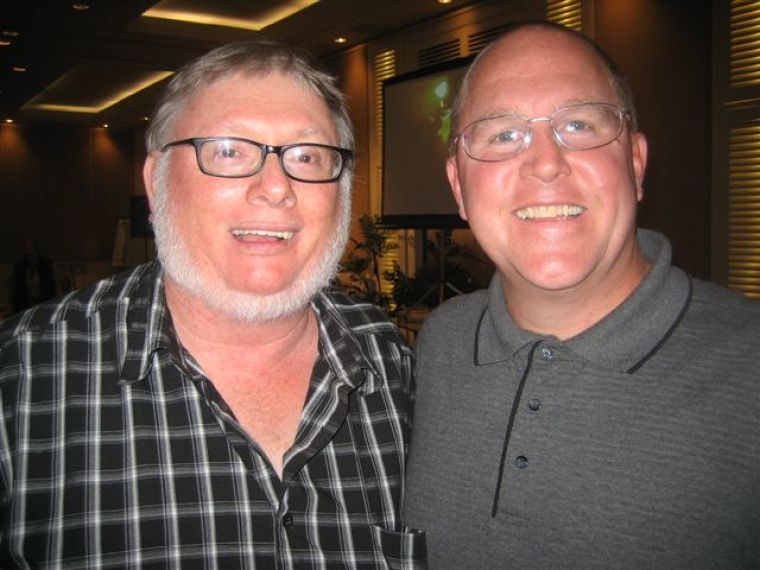
Well-Being Australia chairman Mark Tronson, a Baptist minister, asks the incredibly difficult question: "Within secular Australian society, if you hear views expressed by someone in authority that you think are inconsistent with your faith, where should you draw the line on the tricky issue of 'passive endorsement'?"
M V Tronson comments that the issue itself is not a new one; it has always been confronted at every level of society. At what point does 'passive endorsement' become 'acquiescence' just to be polite? Should people say nothing to avoid 'rocking the boat'?
M V Tronson has been the Australian cricket chaplain since 1984, the Australian team for 17 years to 2000 and from 2001 'Life After Cricket' and 'Cricket family respite' in association with respite for Australian Institute of Sport athletes.
It had been a busy week for M V Tronson's own ministry, including a visit to the Australian women's cricket team at Cricket Centre of Excellence in Brisbane .
In addition of such major ministry engagements, M V Tronson squeezed in as many sessions of the Christian Witness Ministries conference at Salt, Kingscliff on the New South Wales north coast as possible, and was pleased he did so.
"The issue of passive endorsement was raised when I heard Jeffrey Whittaker speak at the conference last week," M V Tronson said.
Jeffrey Whittaker, a pastor from Michigan USA, whose credentials include being on the Billy Graham Crusade program 'music team', spoke of the destructive consequences of 'passive endorsement' from his own experience in denominational life (Assemblies of God, USA).
"This challenged me, as over my 30 years in Christian ministry, I have seen that it has been difficult not to acquiesce to passive endorsement in circumstances that are out of one's own control.
When a confronting issue is raised at a public function, is it better to speak quietly to the program convener afterwards, make it official by writing out the complaint or standing up right there and then disassociating yourself from program's scheduling or the speaker's comments?" M V Tronson asked.
Only recently at a business breakfast, M V Tronson felt uncomfortable when jokes from the guest comedian illustrated the antithesis to Christian morality. Should he have 'passively endorsed' the presentation and conformed to society's expectations, or should he have got up and made a fuss?
As Jeffrey Whittaker challenged, at what point is the proverbial line crossed?
It is even more difficult 'at Christian functions' to determine when to challenge speakers when they are fellow ministers proclaiming views which are not in line with the historical orthodox plain understanding of Scripture and core tenets of Christian belief as taught from the early church fathers.
M V Tronson wonders if it advisable to determine a 'single best approach' or a zero tolerance, which, if followed to the 'black letter' of your principles, could turn your life upside down for better or for worse.
"There have been times in my ministry when a delay has enabled a more thoughtful approach later, and others when I have 'kicked myself' for not saying something there and then before the damage had been done," M V Tronson reflected.
He explained that the sin of omission, according to the biblical record, is just as serious to God as is the sin of commission. Moreover, he concurs with Jeffrey Whittaker that allowing something that is clearly outside acknowledged givens to 'pass without challenge' should be deemed as 'very serious' as it is likely to mislead many listeners.
M V Tronson says that taking a bold but sober measured approach for truth, as did Martin Luther, has been largely lost within Protestantism in the wake of Pentecostal 'prosperity teachings' and the unequivocal authority dogma and salvation theology being reiterated by the Roman Catholic Church's Pope Benedict XIII.
It is no longer a case of where that line of passive endorsement is drawn, says M V Tronson, rather there is urgency for a constant proclamation of biblical truth by Protestant leaders regardless of how it gets reported through the secular media.
"To err on the side of righteousness, and stand against passive endorsements," says M V Tronson, "is a must in order to stem the tide to a theology of wanton greed, and biblical proclamation against doctrinal errors on salvation and dogma."